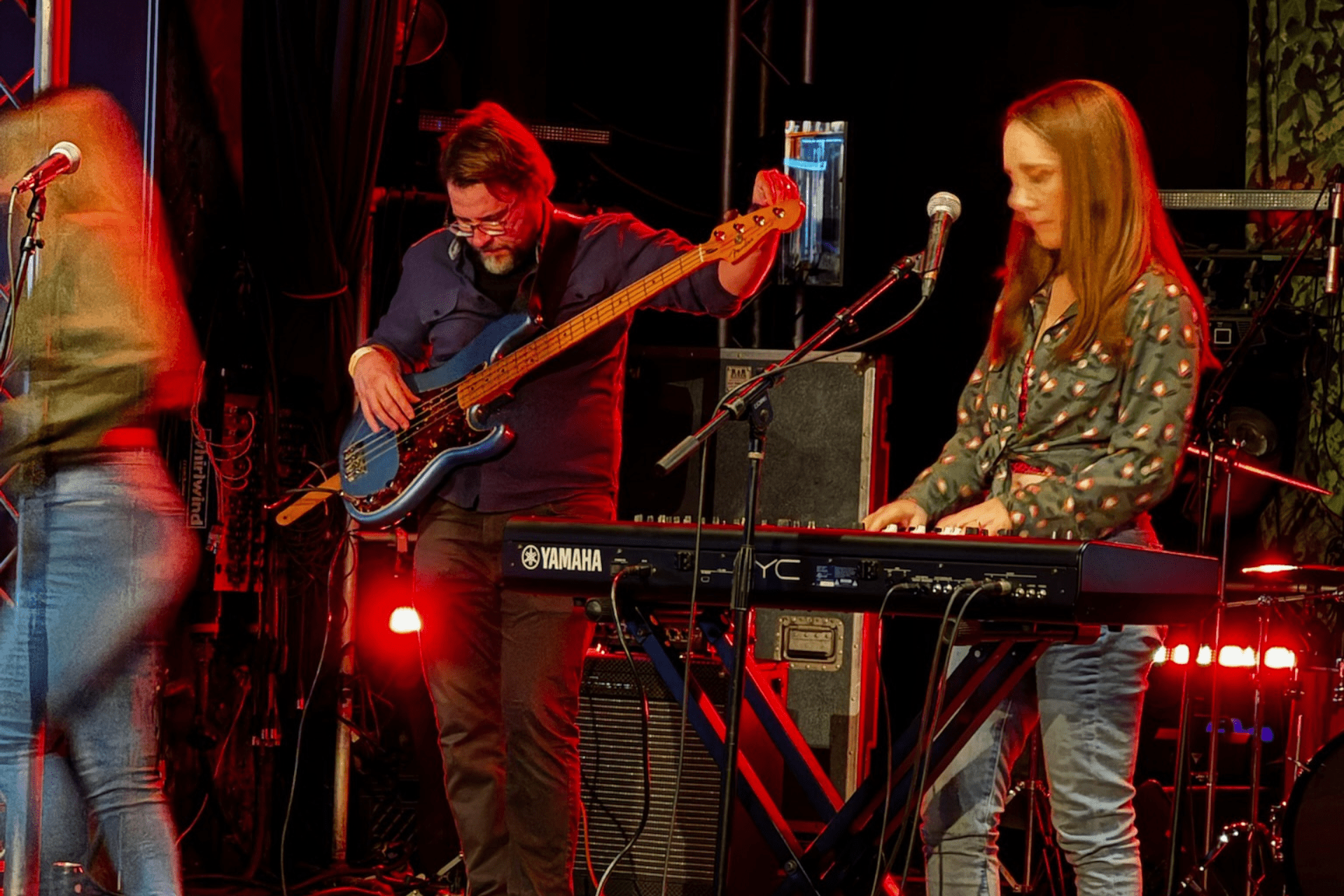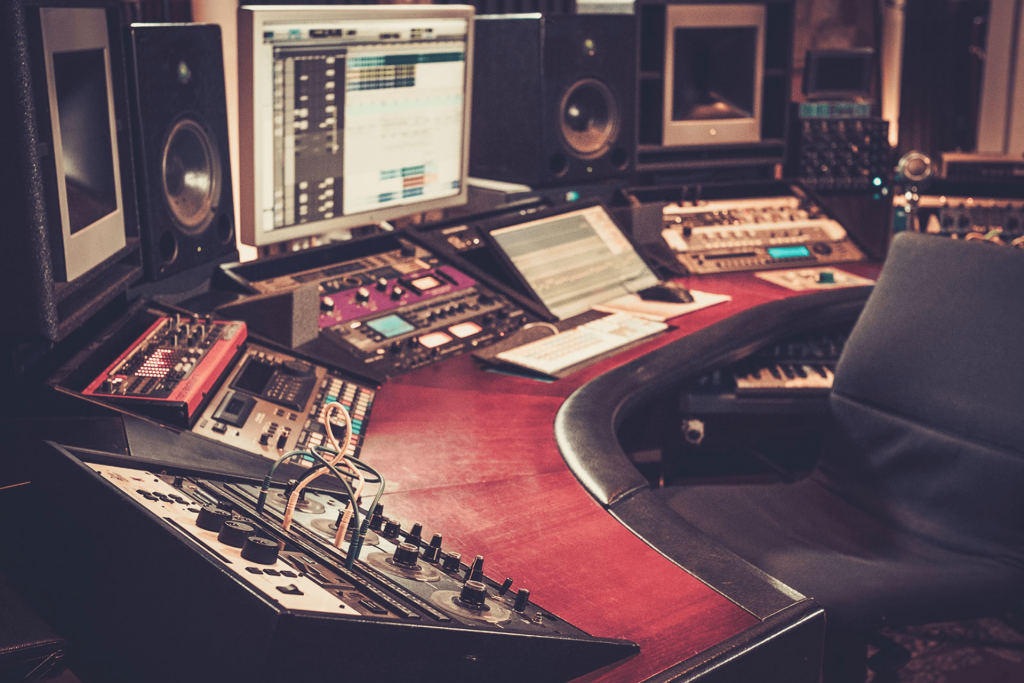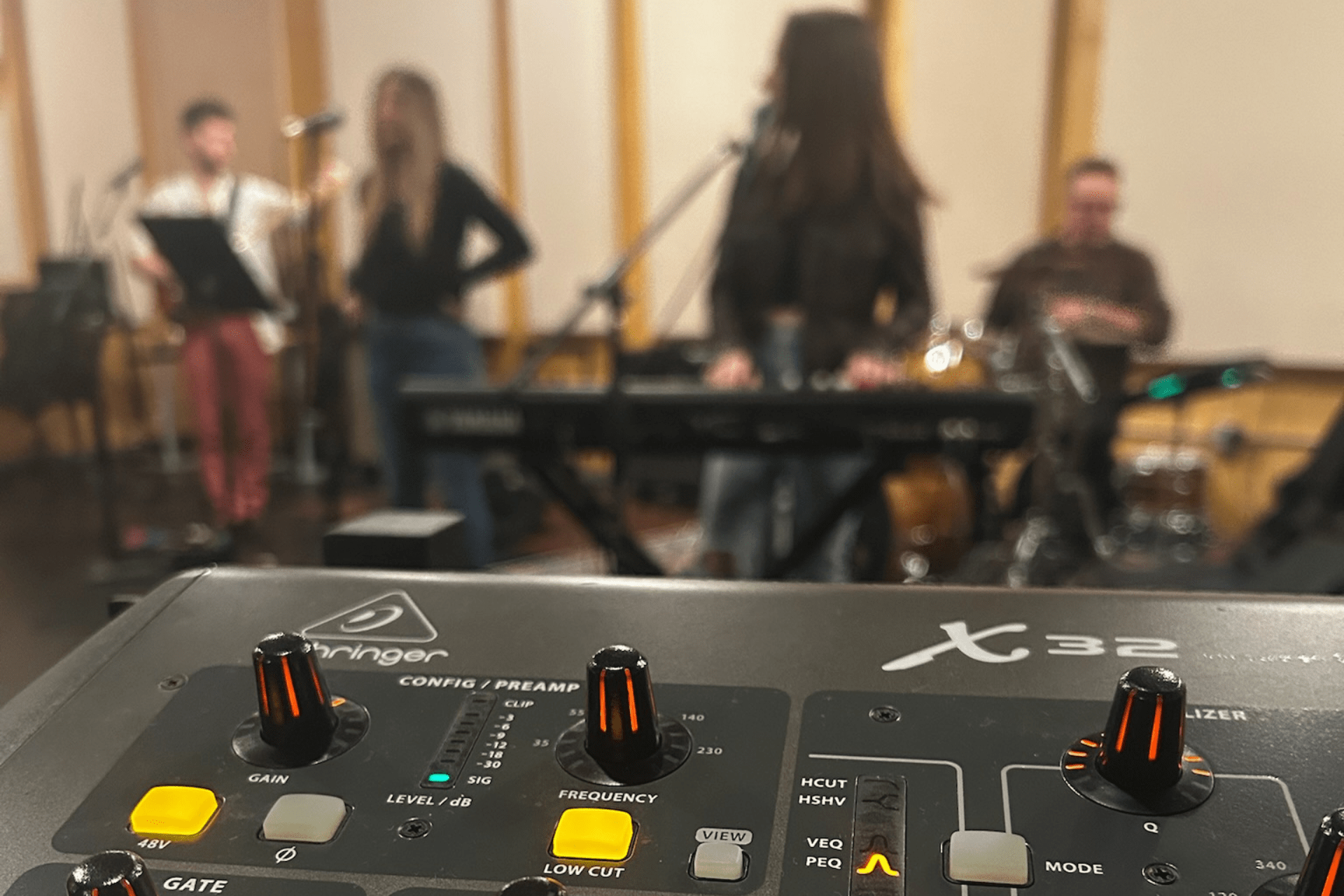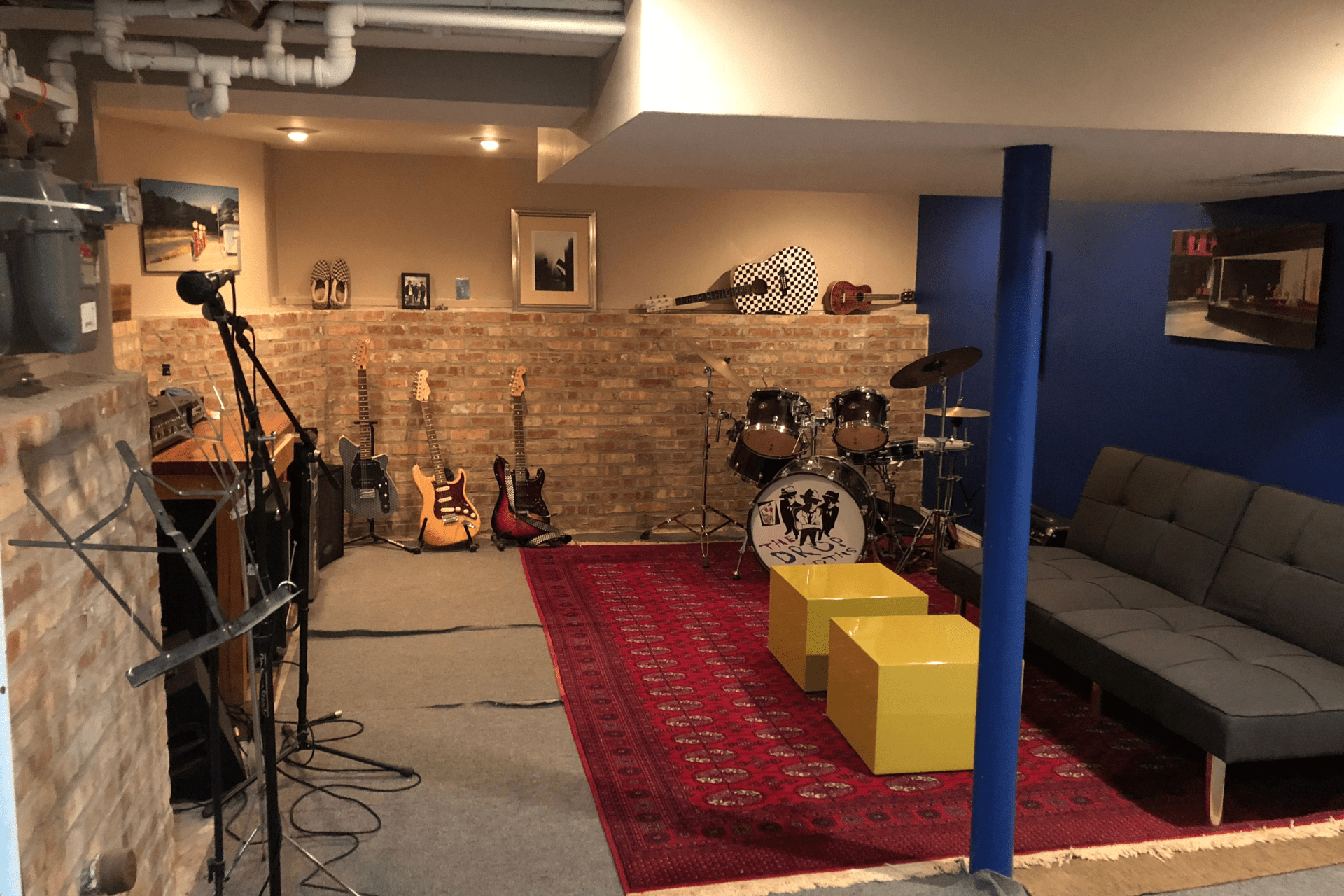You’ve played your song a hundred times—alone in your room, at shows, maybe even in front of a mirror with a hairbrush.
Now it’s time to make your sound real. But you find yourself asking…What do you do at a studio recording, anyway? Do you just plug in and play? Will an engineer tell you what to do? What if you mess up?
Relax. Whether it’s your first session or you just want to do it right this time, here’s exactly what to expect at a recording studio—and how to make the most of your paid studio time.
What is a Studio Recording?
A professional studio recording is where raw musical ideas turn into professional tracks. In a controlled environment, it’s possible to capture the best possible version of your sound. You’ll record multiple takes, layer instruments and vocals, and work with engineers and producers to shape the final track.
What to Expect at a Studio Recording Session
There’s a lot that goes into a recording studio session (looking at you, White Album Project). In fact, the prep work before you even get to the studio is a massive factor in nailing your studio time. Let’s break it down so you can come in ready to create.
#1. Prep Before Booking a Professional Recording Studio
Learn Your Lyrics (Seriously)
The studio is not the place to be flipping through your notes, mumbling half-finished verses, or second-guessing melodies. The more prepared you are, the more time you’ll have to focus on performance instead of problem-solving.
Record a Demo First
Before you even get to the studio, recording a rough demo at home will save you so much time. A basic recording on your phone or laptop will do. It helps you hear your song differently and catch anything that needs tweaking before paying for studio time.
Understand Your Role
If you’re working with a full band, know what’s expected of you. Are you laying down your parts first? Waiting for the rhythm section to go first? Do you need to bring your own gear? Studios run best when everyone knows their job and is ready to go when it’s their turn.
#2. Collaborate with the Record Label and Studio Team
Working with a Producer
A music producer is your creative partner. Some producers will be hands-off and let you do your thing, while others will push you in new directions. Be open to feedback. The right producer won’t change who you are—they’ll just help bring out the best version of what you’re trying to create.
Working with the Engineer
Your audio engineer is the magic behind the board. They’ll handle mic placement in the vocal booth, levels, and all the technical stuff so you can focus on your performance. A good engineer is worth their weight in gold, so trust them when they suggest small adjustments.
#3. Familiarize Yourself with Professional Recording Studio Equipment
Common Studio Equipment
Studios look like spaceship control rooms if you’re not used to them, but you don’t need to know how every knob and fader works—that’s what the engineers are for. However, it helps to understand the basics:
- Microphones: Different mics work better for different instruments and voices.
- Pre-Amps & Interfaces: These process and boost your signal before it hits the computer.
- DAWs (Digital Audio Workstations): Software like Pro Tools or Logic Pro records and edits your tracks.
- Monitors & Headphones: How you hear yourself matters, so get comfortable with the setup.
Setting Up Your Session
Before you start recording, there’s studio setup time. This is when the engineer gets your levels right, positions the microphones, and dials in the sound—especially balancing the drum kit. Be patient—this part is crucial for making sure everything sounds solid before you even start playing.
#4. During the Recording Session
 Equipment Check and Sound Test
Equipment Check and Sound Test
Before recording begins, you’ll do a soundcheck to make sure everything is working properly. This is when the audio engineer adjusts levels and pop filters to make sure your instrument or vocals are coming through cleanly.
Recording Techniques and Practices
Depending on the song, you might record:
- Live Takes: The whole band plays together to capture an organic feel.
- Layered Tracks: Instruments and vocals are recorded separately, then stacked together.
- Punch-Ins: If you mess up a section, you can re-record just that part instead of starting over.
Layering Vocals and Harmonies
If your track has harmonies, backup vocals, or multiple layers, this is where things get fun. You might double your lead vocals for a thicker sound or add harmonies to bring depth to the track. This is where small details—like adding a musical instrument—can take your song from good to damn, that sounds huge.
#5. Post-Recording Tasks
Reviewing Takes and Picking the Best Ones
After recording, you’ll listen back to each take. Some artists know immediately which version is the one, while others need a few listens. Don’t rush this part—it’s worth taking the time to choose the best performance.
Making Adjustments with Production
Once the raw tracks are recorded, the next steps include:
- Editing: Cleaning up timing issues or small mistakes.
- Mixing: Balancing each track so everything sits in the right place.
- Mastering: Final touches to make sure the song sounds great on any speaker, from earbuds to car stereos.
What Do You Do at a Studio Recording: Frequently Asked Questions
What do you do in a recording studio?
Musicians work with music producers and engineers at a studio recording to capture high-quality tracks. The session includes soundchecks, multiple takes, layering instruments and vocals, and refining performances. After music production, tracks are reviewed, edited, mixed, and mastered for release.
What to know before going to a recording studio?
Before heading to a recording studio, make sure you know your material inside and out. Rehearse thoroughly, record a rough demo, and understand your role in the session. Bring all necessary gear, warm up your voice or instruments, and be open to feedback from producers and engineers to get the best possible sound.
How much is a 1 hour studio session?
You can expect to pay between $30 and $200 per hour, depending on the studio’s equipment, location, and whether an engineer is included. Smaller studios tend to charge less, while high-end facilities with top-tier producers and gear will be on the higher end of the price range.
Is it hard to get a job at a recording studio?
Getting a job at a recording studio can be competitive, but gaining experience through internships, networking, and building a portfolio of work can help. Many engineers and record producers start by assisting on sessions, learning the technical side of recording, and proving their skills before landing full-time roles.
Submit Your Music and Get in the Studio with Hardstop Records!





 Equipment Check and Sound Test
Equipment Check and Sound Test